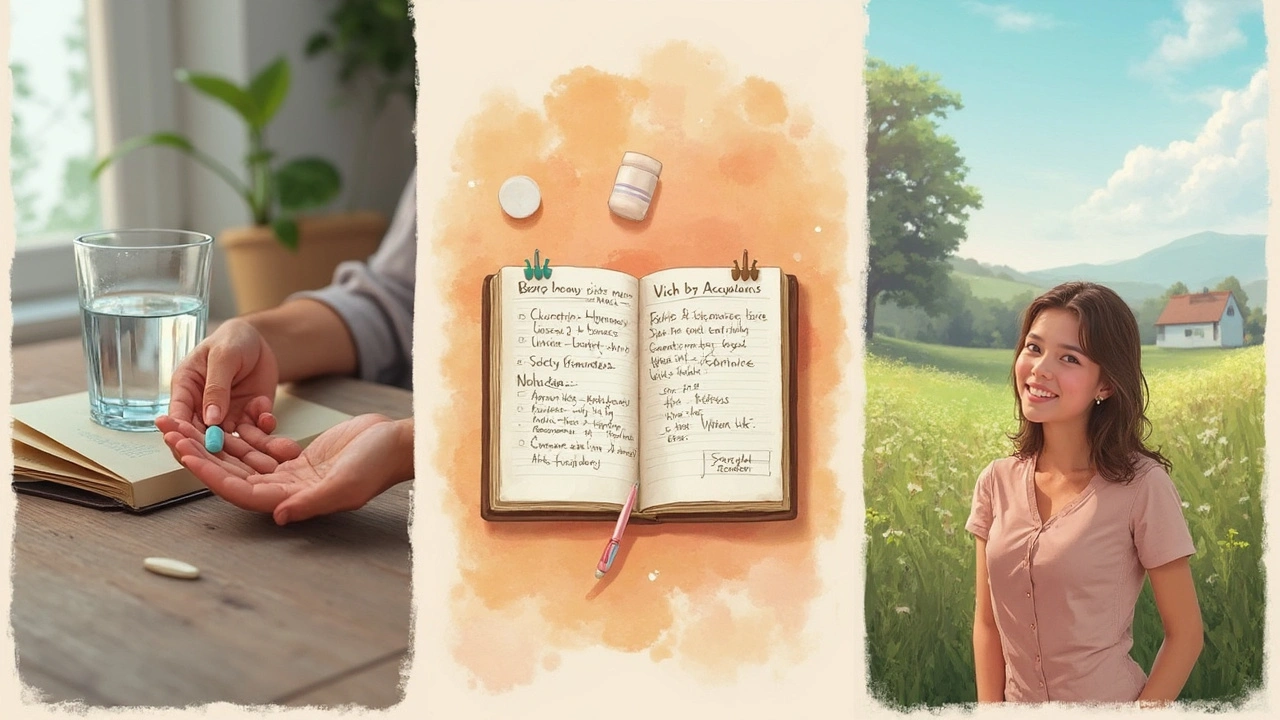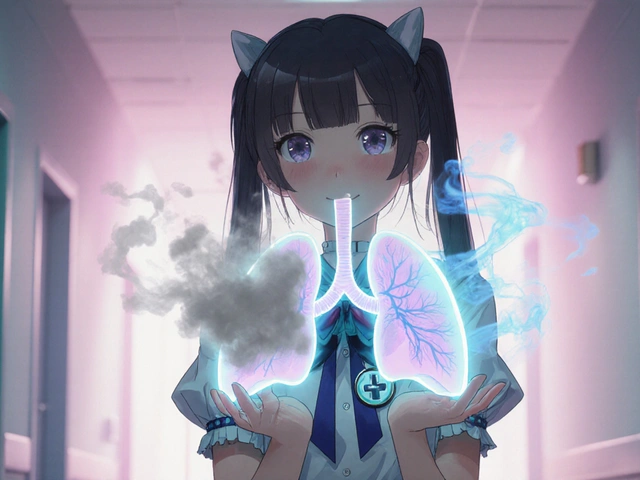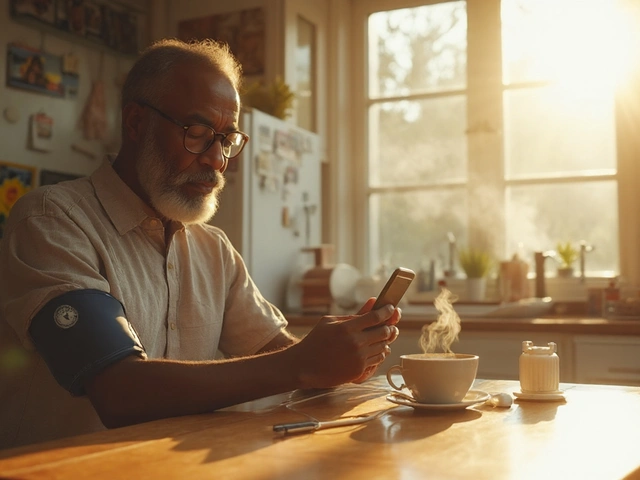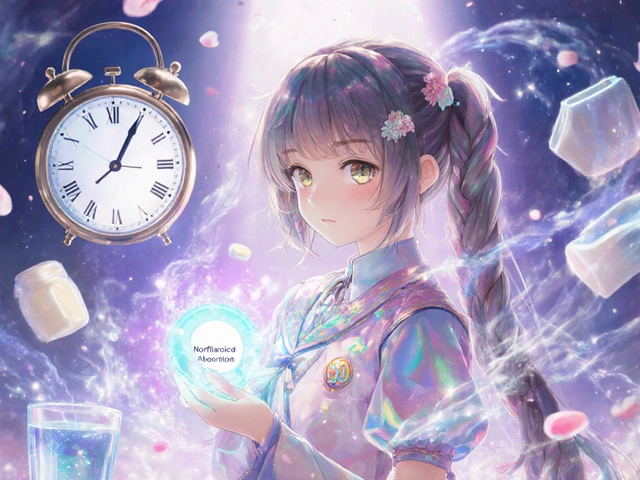You wake up, look in the mirror, and there it is—another breakout. No matter what you try, your skin keeps fighting back. That’s why the name Accutane sparks hope and, for many, a bit of fear. Controversial stories float around online: life-changing results, or sometimes, a list of side effects that reads like the fine print on a horror movie contract. Admit it, if you’ve looked for a real solution to stubborn acne, you’ve probably stumbled across Accutane at least once. But what’s the truth? Let’s break down this infamous pill, minus the hype and the jargon, so you can see what it really does to your skin, your body, and your life.
How Does Accutane Work and Who Needs It?
This isn’t just another spot treatment or a fancy face wash. Accutane—the brand name for isotretinoin—comes from the same family as vitamin A, but works way differently. Your skin’s oil glands, called sebaceous glands, are like tiny engines pumping out oil (sebum). If you produce too much sebum, it clogs your pores, mixes with dead skin and bacteria, and boom: you get acne. What isotretinoin does is shrink those overworked glands—like telling your skin, "Hey, calm down with the oil." This cuts oil production up to 90%. It also reduces inflammation, evicts acne-causing bacteria, and speeds up how your skin renews itself. Altogether, it hits most of the root causes of serious acne at the same time.
But it isn’t for everyone. Dermatologists usually pull out isotretinoin only for the tough cases—those giant, cystic breakouts or severe nodular acne that just laughs at antibiotics, creams, and all those over-the-counter promises. Have you tried months (or years) of prescriptions, only to see new pimples popping up? Then Accutane might be on the table. Even then, it’s a serious step. You’ll need blood tests, regular doctor visits, and—for women in their reproductive years—strict birth control because the drug can cause severe birth defects.
Here’s what’s eye-opening: the FDA approved isotretinoin back in 1982, and by 2019, doctors had prescribed it to over 18 million people worldwide. In the US alone, nearly 200,000 people started treatment every year for the past decade. Success rates are sky-high, with around 85% of users seeing permanent, dramatic improvement after just one round lasting four to eight months. But the flip side? Its potential side effects have led to strict controls in many countries—there’s even a mandatory program in the US (iPLEDGE) just to make sure patients don’t slip through the cracks.
To help you see exactly where isotretinoin stands, here’s a quick report card based on recent dermatology reviews:
| Aspect | Results |
|---|---|
| Success rate (long-term) | 85%+ |
| Common age group | 16 - 30 years |
| Average treatment length | 4–8 months |
| Typical dose range | 0.5–1 mg/kg/day |
| Recurrence (mild/moderate) | 10–20% |
This isn’t a casual fix, and it’s not for a pimple or two. For those with skin that feels under siege, though, it’s sometimes the answer they’ve been chasing for years.

What’s It Really Like To Take Accutane?
Let’s get real: this isn’t a glowing Instagram story with filters and hashtags. The first thing that changes is your skin’s mood—it usually gets worse before it gets better. There’s this classic “purge” stage where breakouts flare for the first 4–6 weeks. People talk about chapped lips, but don’t picture just some gentle dryness. We’re talking lips so dry you’ll go through half a stick of balm daily. Bloodshot, dry eyes join the party, so stash artificial tears in your bag. Even the inside of your nose gets so dry it sometimes bleeds, especially in winter or air-conditioned rooms.
Mood shifts can feel subtle or tough to spot—some users share stories of feeling low or just off. That’s why doctors screen for mental health issues before you start. Stepping into the sun? Expect your skin to burn faster than ever, so SPF 50 is a must. Nosebleeds aren’t unusual, and workouts might feel different because some folks get joint aches, especially in the knees and back. Skin heals slowly, so a scraped knee or healing tattoo can take its sweet time.
On the food front, you’ll see doctors check your cholesterol and liver numbers regularly. That’s because isotretinoin can boost cholesterol and triglycerides, so eating lighter—think fish, veggies, more water—really helps. Alcohol can pile on liver stress, so moderation (or a break) is smart. If you take vitamin A or supplements containing it, you have to stop, since it adds up and raises risks of toxicity.
Here’s a day-in-the-life: carrying a lip balm in every jacket you own, slathering moisturizer after morning showers, and shopping for gentle, fragrance-free cleansers. You’ll avoid waxing (the skin’s just too fragile). Blood tests? Expect them every month, along with a pregnancy test for those who could get pregnant—no shortcuts there. If you play sports, you might find you bruise a bit more easily than usual.
It’s not all bad, though. Imagine waking up by month five and realizing you’re not planning your day around your breakouts anymore. Stubborn cysts start fading. Skin texture gets smoother. Some people see oiliness vanish, and makeup holds all day for the first time ever. Friendships and dating often get easier—confidence rebounds in a way only people who’ve struggled with acne can understand. By the last pill, most users call the experience “worth it”—but they’ll admit, it isn’t easy.

Side Effects, Safety, and Getting the Best Out of Accutane
Let’s be honest: warnings about Accutane aren’t just scare tactics. The drug can cause lifelong birth defects if someone gets pregnant during treatment, so birth control (usually two forms) and routine pregnancy tests are non-negotiable for those who could become pregnant. Beyond dryness, about 20% of people see blood cholesterol go up. Liver enzymes can spike—hence the monthly bloodwork. Rarer side effects include muscle aches, blurred vision, headaches, or in extremely rare cases, severe mood changes. Countless studies, including a big review in the Journal of the American Academy of Dermatology, have found no direct proof that isotretinoin causes depression or suicide, but docs are careful—if you have mental health worries, talk openly before starting.
Your skin will be wildly sensitive—laser treatments, waxing, or skin peels should be skipped for months after finishing. Tattoos and piercings? Wait a bit. Sometimes, joint pain lingers after the last pill, but this is rare and usually fades. If you wear contacts, dry eyes can drive you nuts, but preservative-free drops help a lot.
Tips for surviving the journey:
- Stock up on thick, simple moisturizer—think Cetaphil, CeraVe, or Aquaphor. Reapply every few hours, even when skin feels fine.
- Buy fragrance-free lip balms (Vaseline or Aquaphor works wonders); keep one everywhere—car, work, backpack, nightstand.
- Set a phone reminder for your pill. Skipping days hurts your progress, and higher daily doses don’t equal better results.
- Wear sunscreen, every day, no matter the weather. Sunburn happens faster than you’d think.
- Pile up on water—aim for at least 2 liters a day. Helps skin, helps your body process the drug.
- If you notice joint pain or muscle aches, scale back intense exercise until it passes.
- For nosebleeds, try a humidifier in your bedroom and dab petroleum jelly inside your nostrils before bed.
- Watch your mood and energy—log your feelings weekly, and loop in a friend or family member so you don’t miss signs of feeling mentally off.
- Be ready to talk about your experience online—forums like Reddit’s r/Accutane offer daily tips from fellow users worldwide, and you’ll realize you’re not alone in the weirdness.
Doctors calculate your total dose based on your weight—reaching about 120–150 mg per kilogram over the full course reduces chances of acne returning. Lower daily doses sometimes mean fewer side effects, but your doctor will find the balance that works for you. Around 10–20% of folks need a second round, especially if acne bounces back. Most insurers in the US cover isotretinoin, but expect copays, and some plans need proof that you’ve failed other treatments first.
A few little-known facts: Accutane doesn’t stay in your system long after you stop (about 10 days). You can donate blood one month after finishing. Permanent dryness isn’t common—most people’s skin and eyes return to baseline by 3–6 months post-treatment. But the results? For most, it’s nothing short of a skin miracle. You won’t forget the side effects, but many say it’s the first time they’ve recognized themselves in the mirror, minus the blemishes.
Accutane is a heavy hitter, not a casual fix. But if you’ve been fighting stubborn, painful breakouts for too long, it could change your life. Just go into it with open eyes, patience, and a healthy supply of lip balm.





Lorena Garcia
Accutane changed my life, but the lip balm obsession is real.
Dietra Jones
Totally get the dry lips thing – I've been carrying a tub of Vaseline in every pocket.
The moisturizin routine takes up half my bathroom shelf, but it's worth it.
Blood tests feel like a monthly reminder that I'm on a serious mission.
Victoria Guldenstern
Isotretinoin works by convincing oil glands to take a permanent vacation. The result is a skin surface that finally remembers how to be matte. Doctors only prescribe it when acne has declared war on the face. The drug shrinks the glands so nobody has to clean up a river of sebum. A typical course lasts four to eight months and requires daily pills. During that time the skin often erupts in a purge that looks like a fireworks show. Dry lips become a constant companion and the bathroom mirror turns into a lip balm showroom. Blood tests are taken every month to make sure the liver and cholesterol stay in the green zone. Women must use two forms of birth control because a single mistake can cause catastrophic birth defects. The iPLEDGE program exists to keep that risk under control. Side effects like joint aches and nosebleeds are common but usually fade after treatment. People who stick to the plan often see an 85 percent permanent improvement rate. A small percentage need a second round if the acne decides to come back. The drug does not linger in the body after ten days so you can donate blood a month later. Sun protection becomes non‑negotiable because the skin burns faster than a cheap toaster. In the end the trade‑off feels reasonable for anyone who has spent a decade hiding behind makeup.
Bill Bolmeier
I hear you, the purge feels like a battlefield and the endless moisturizer routine can be exhausting, but you’re already winning the war by staying the course! Keep that lip balm stocked, keep the sunscreen slathered, and remember every month of blood work is a badge of honor. The dryness will pass and the clear skin at the finish line is worth every dramatic moment. Stay strong, the community’s cheering you on!
Darius Reed
Man, the whole accutane saga is like riding a rollercoaster made of moisturizrs and lab reports. I started at 15 and by month six my face looked like a billboard for clear skin. Sure the dry eye thing is a pain but i just keep a bottle of artificial tears on my nightstand. My doc said the cholesterol bump is normal and i watch my diet like a hawk. Bottom line: if you can survive the lipstick phase you’ll thank yourself later.
Karen Richardson
Actually, isotretinoin does not cause permanent dryness; most patients return to baseline within three to six months after stopping. The cholesterol elevation is typically transient and can be managed with dietary adjustments.
AnGeL Zamorano Orozco
Oh great, another drug that promises miracles but delivers a parade of side effects that feel like a personal apocalypse! The moment you pop the first pill the world turns gray and your lips crack like desert dunes, your eyes water like waterfalls in a storm, and every joint in your body decides to audition for a creaky piano recital.
You’re forced to schedule blood draws like a secret agent checking in with headquarters, and the whole iPLEDGE circus makes you feel like you’re starring in a bureaucratic nightmare.
Yet the promise of clear skin floats above the chaos like a distant lighthouse that you can never quite reach without sacrificing a piece of yourself.
The emotional rollercoaster is real – some days you’re on top of the world, the next you’re staring at the ceiling wondering why you ever thought a pill could fix everything.
And let’s not even talk about the endless supply of lip balm that becomes your new best friend and worst enemy at the same time.
But hey, if you survive this ordeal you might finally look in the mirror and see a face that isn’t covered in a map of volcanoes.
So grab your moisturizer, put on that SPF 50 and brace yourself for the ride of your life!
Cynthia Petersen
Wow, sounds like a spa day for the soul-if the spa was run by a drill sergeant. Keep the humor alive, it’s the best armor against the dryness.
Marcia Hayes
If you’re reading this and feeling a bit overwhelmed, remember that every step forward, no matter how small, adds up. Take the routine one morning at a time, and trust that the results will follow. You’ve got a whole community behind you, cheering quietly.